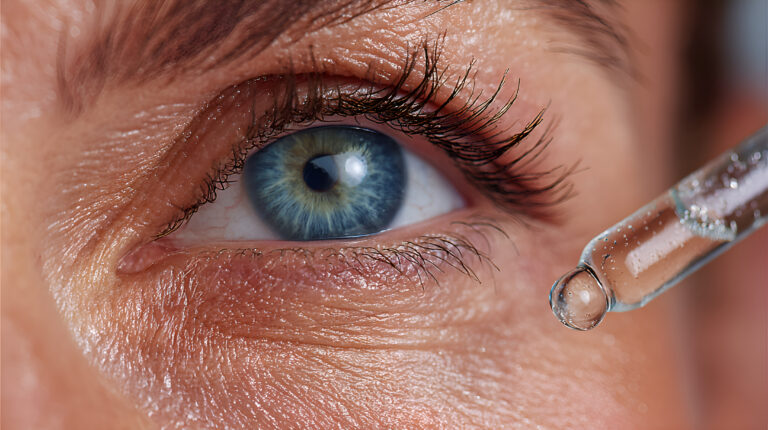Blurry vision, eye irritation, and sensitivity to light can make even simple tasks feel frustrating. If you’re dealing with these symptoms, you may wonder whether cataracts or dry eye disease are to blame, or if both are contributing to the problem.
But do cataracts cause dry eyes, or are they just commonly experienced together? Understanding the connection can help you take the right steps toward clearer, more comfortable vision.
Do Cataracts Cause Dry Eyes?
Cataracts don’t directly cause dry eye disease, but the two conditions are often connected. That’s because both are more common with age and share several risk factors, including:
- Aging, which naturally affects the lens of the eye and tear production
- Chronic inflammation, hormone changes, or autoimmune disorders
- Environmental stress, like air conditioning or screen exposure
In fact, the World Health Organization estimates that up to 20% of cataracts may be caused by overexposure to UV radiation, a known trigger for dry eye as well.
Although cataracts typically cause cloudy, blurred, or dim vision, and dry eye disease results in burning, stinging, or a gritty sensation, the symptoms can sometimes overlap. That’s why it’s so important to see an eye doctor who can evaluate you for both conditions and provide a personalized plan for relief.
How Cataract Surgery Can Affect Dry Eyes
Cataract surgery is one of the most common and successful procedures performed today, but it can temporarily affect the eye’s tear film. Here’s what to know:
Before Surgery
Many patients have undiagnosed dry eye disease prior to surgery. Treating it in advance helps improve surgical outcomes and comfort during recovery.
During Surgery
While the procedure itself is quick and typically painless, it can temporarily disrupt the eye’s surface, leading to dryness or discomfort afterward.
After Surgery
Some patients experience temporary dry eye symptoms following cataract surgery. This is often due to inflammation, changes in blinking patterns, or reduced tear production. Fortunately, most symptoms improve within weeks with the help of artificial tears, warm compresses, or prescription drops.
If you already have dry eye disease, your eye doctor may recommend additional steps to help protect the surface of your eye both before and after surgery.
What You Can Do to Protect Your Vision
If you’re struggling with symptoms like blurry vision or eye irritation, don’t wait to get checked. Your eye doctor can:
- Evaluate your symptoms and determine if you have cataracts, dry eye disease, or both
- Discuss treatment options tailored to your condition and lifestyle
- Monitor your progress and adjust care as needed
UV protection is also key. Wearing sunglasses that block 100% of UVA and UVB rays, using artificial tears, and staying hydrated can support your long-term eye health. Annual eye exams help catch early changes and keep you on track.
Schedule an Appointment with Florida Eye Specialists Today
Understanding how cataracts and dry eye affect each other can help you make informed decisions about your treatment options and long-term care. Whether you’re considering cataract surgery, dealing with chronic dryness, or simply noticing changes in your vision, an expert evaluation is the best next step.
Take control of your eye health and schedule an appointment with Florida Eye Specialists today. Our experienced physicians will help you find clarity and comfort with personalized care tailored to your needs.
